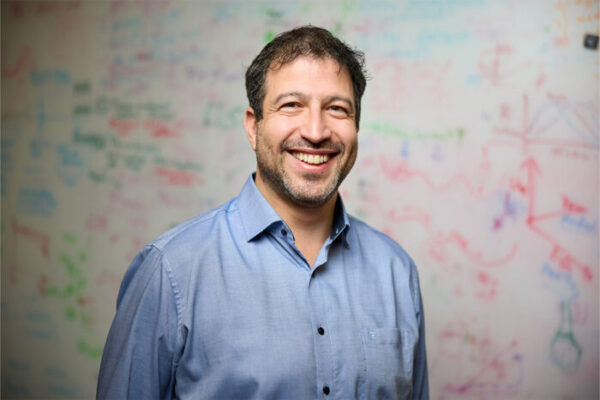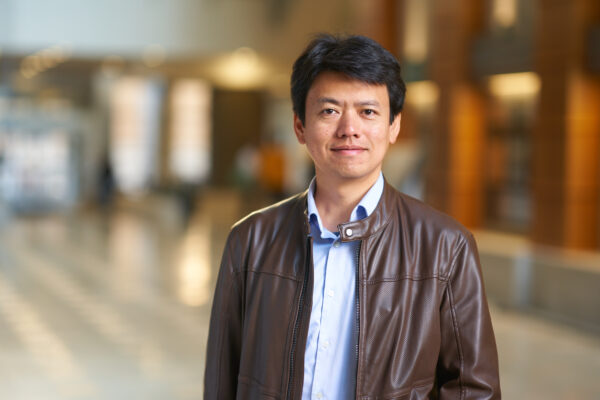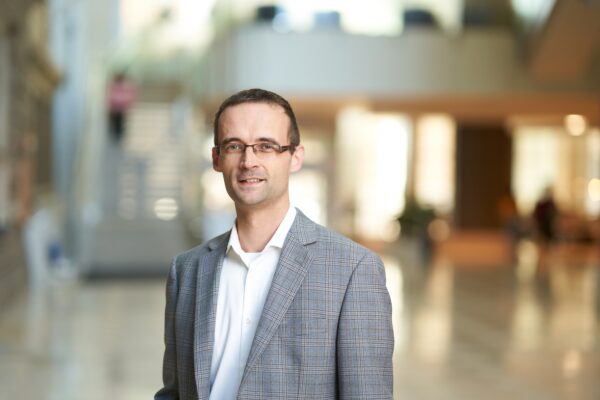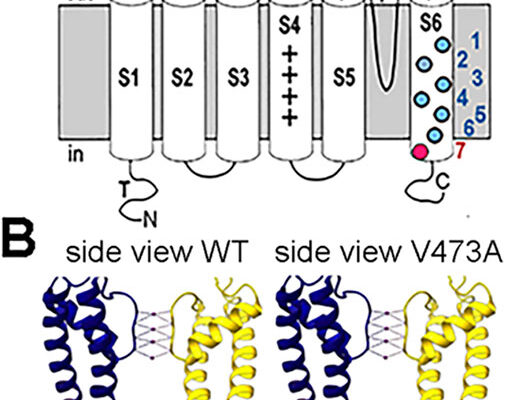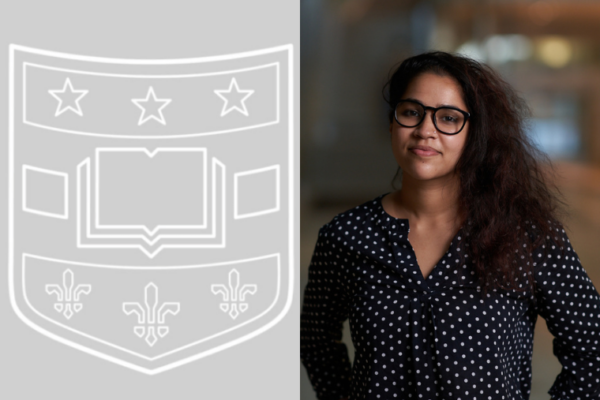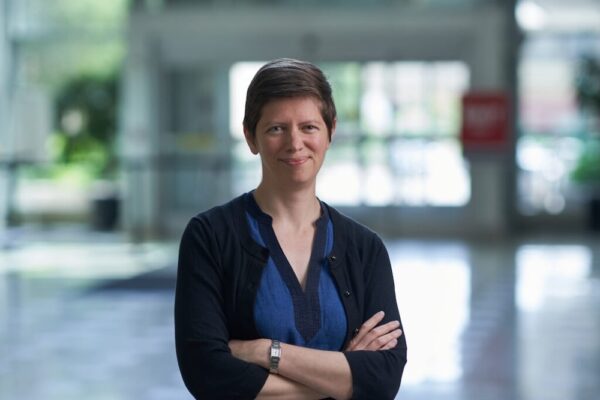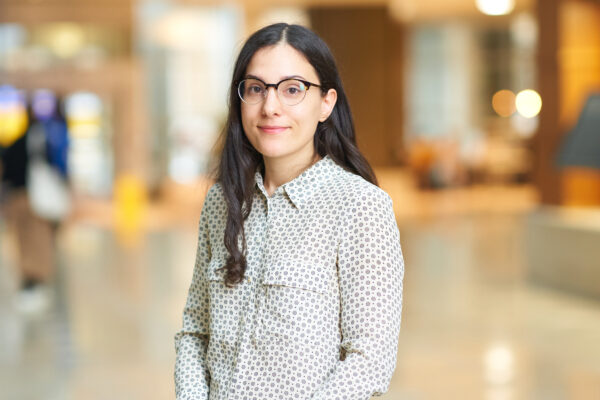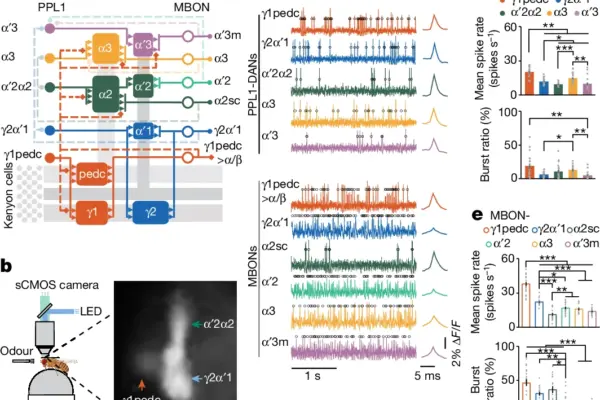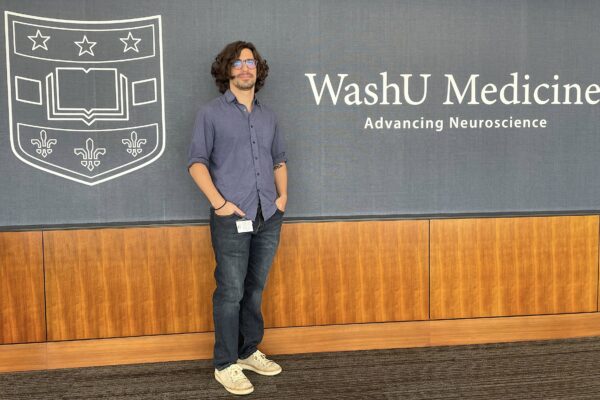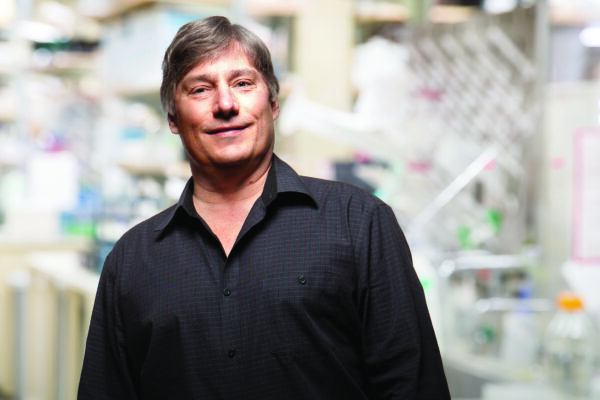Learn about the latest news and events going on in the department. You can also follow us on X @WashUMedNeuro and LinkedIn.
Research soaring with the Eagles
Jason Yi, PhD, received a $400,000 pilot grant from the Eagles Autism Foundation to advance a new approach to treating autism spectrum disorder.
New papers unveil insights into how the brain processes complex visual input
Tom Franken, MD, PhD, has recent papers published in iScience and Neuron that add new knowledge to how the brain processes complex visual input.
Papouin senior author of study published in Science (Links to an external site)
Thomas Papouin, PhD, assistant professor of neuroscience, is the senior author of a groundbreaking study published May 15 in Science.
David Van Essen Symposium: Insights Into Cortex
Join the WashU Medicine Department of Neuroscience on Sept. 8-9 for the David Van Essen Symposium: Insights Into the Cortex, a tribute to the 80th birthday of Van Essen.
Yi receives 2025 Dean’s Impact Award (Links to an external site)
Jason Yi, PhD, an assistant professor of neuroscience, is acknowledged for his work with the Angelman Syndrome Foundation and his hands-on, compassionate approach to the syndrome’s community.
WashU Medicine researchers identify potential for repurposing Prozac to treat rare epilepsy
Christina Gurnett, MD, PhD, and Lawrence Salkoff, PhD, are lead authors on a case report that describes how Prozac can be used in the treatment of children with rare forms of epilepsy.
Brain pathway links inflammation to loss of motivation, energy in advanced cancer (Links to an external site)
Study in mice shows motivation can be restored with targeted treatments.
Science study identifies direct connection between cancer-related inflammation and the loss of motivation characteristic of advanced cancer (Links to an external site)
In a study published April 11 in Science, Adam Kepecs, PhD, and other WashU Medicine researchers report they discovered a previously unrecognized pathway in the brain that senses inflammation and actively suppresses dopamine — a key driver of motivation — resulting in apathy and loss of drive.
Oviedo installed as Department of Neuroscience’s latest endowed professor
Hysell Oviedo, PhD, has been installed as the Roger M. Perlmutter Career Development Assistant Professor of Biomedical Research.
Whitehall Foundation grant to help fuel Huang’s latest research
Cheng Huang, PhD, has won a Whitehall Foundation grant to study the neural mechanisms of prediction using Drosophila (fruit flies) as a powerful model to understand analogous processes in the human brain.
Franken awarded Young Investigator Grant from BBRF
Tom Franken, MD, PhD, has received a Young Investigator Grant from the Brain & Behavior Research Foundation (BBRF) to fund a new direction in his research on the neural mechanisms of perception.
Case report shows how fluoxetine (Prozac) was repurposed to treat a severe seizure disorder in two sisters under treatment at WashU Medicine (Links to an external site)
In Frontiers in Pharmacology, Lawrence Salkoff, PhD, and colleagues report how norfluoxetine, a long-lasting metabolite of fluoxetine that may accumulate in the brain at greater concentrations than fluoxetine itself in patients treated with fluoxetine, is most likely the agent bringing relief to the patients.
Dhanerawala earns American Heart Association fellowship
Zahra Dhanerawala, an MD/PhD student in the lab of Edward Han, PhD, was awarded an American Heart Association (AHA) Predoctoral Fellowship to further her research into the connection between the hippocampus and memory.
Working within and beyond WashU
Martha Bagnall, PhD, is the principal investigator on a $5.2 million NIH grant involving collaborators at four universities.
Prufrock named to WashU Medicine Academy of Educators
Kristen Prufrock, PhD, was inducted Oct. 15 into the Academy of Educators at Washington University School of Medicine.
Nature paper explores dopamine-mediated interactions between short- and long-term memory dynamics (Links to an external site)
In Nature, Cheng Huang, PhD, and colleagues show that in the Drosophila brain, interconnected short- and long-term memory units of the mushroom body jointly regulate memory through dopamine signals that encode innate and learnt sensory valences.
CTCN postdoc fellow earns NIH grant
Leandro Fosque, a postdoctoral fellow in the Center for Theoretical & Computational Neuroscience (CTCN) at Washington University, has been awarded an F32 Ruth L. Kirschstein Postdoctoral Individual National Research Service Award.
Remembering Dennis D.M. O’Leary, former WashU neuroscience student and faculty member
Dennis D.M. O’Leary, who earned his PhD in neural sciences in 1983 at Washington University School of Medicine in St. Louis, recently passed away.






